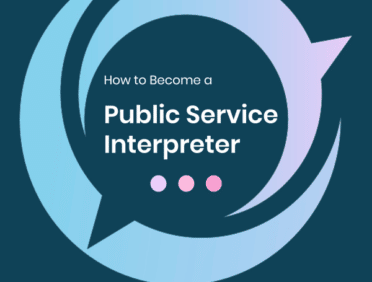The Vital Role of Medical Interpreters
Bridging Linguistic Divides in Healthcare
Effective communication is essential, particularly in the healthcare industry, to provide the community with the appropriate degree of service and crucial information. Individuals with poor English proficiency, as well as those who are deaf or hard of hearing, may struggle to obtain appropriate healthcare services if suitable linguistic support is not provided. Medical interpreters can help bridge linguistic gaps and ensure fair access to healthcare for all.
The Role of Medical Interpreters
Medical interpreters act as linguistic liaisons between healthcare practitioners and patients, ensuring clear and accurate communication in a variety of healthcare settings. Whether during medical consultations, tests, diagnostic procedures, or treatment talks, interpreters guarantee that patients understand their diagnosis, treatment options, and healthcare rights.
By presenting information accurately and sympathetically, interpreters enable patients to make informed decisions regarding their health and well-being.
The Making of Proficient Interpreters
Being a skilled medical interpreter involves more than just bilingualism. To successfully negotiate complicated healthcare interactions, interpreters receive extensive training in interpreting methodologies, medical terminology, and cultural competency. Many interpreters have qualifications from respected organisations like the Chartered Institute of Linguists (CIOL) or the Institute of Translation and Interpreting (ITI), which validate their abilities and knowledge in medical interpreting.
Complexities in Healthcare Communication
While medical interpreters play an important role, they also face unique problems and drawbacks. Interpreters must handle high-pressure situations, manage sensitive information confidentially, and maintain cultural awareness in a variety of healthcare settings. Additionally, interpreters may face problems such as language hurdles, specialised terminology, and emotionally charged circumstances, which necessitate perseverance, adaptation, and professionalism.
The Future of Medical Interpreting
As healthcare systems expand and vary, there is an increased requirement for trained medical interpreters. With an increasingly diversified patient population and regulatory requirements for language access, the demand for skilled translators has never been stronger. Medical interpreting is more than just language; it is also about overcoming cultural gaps, supporting patient-centred care, and guaranteeing health equity for all people, regardless of linguistic or cultural background.
Medical Interpreters FAQs
A medical interpreter is a professional linguist who helps healthcare providers communicate with patients who speak little English or are deaf or hard of hearing. Their work is critical in providing proper comprehension and communication during medical consultations, examinations, and treatments, thereby supporting patient safety, informed decision-making, and healthcare access.
Medical interpreters in the United Kingdom follow the NHS Language Services Framework’s high standards, which ensure linguistic accuracy and cultural competence.
To begin a career as a medical interpreter in the NHS in the United Kingdom, persons often receive formal training in translating techniques, medical terminology, and cultural competency. Many aspiring interpreters seek suitable credentials from renowned institutions or organisations, such as the Chartered Institute of Linguists (CIOL) or the Institute of Translation and Interpreting (ITI). Acquiring practical experience through internships, volunteering, or entry-level work can improve one’s chances in this sector.
The salary range for medical translators in the UK varies depending on experience, language competency, geographical area, and employment status (freelance or employed). On average, medical interpreters can expect to earn between £20,000 and £35,000 per year, with the possibility of higher pay for those with specialised talents or languages in demand.
While both medical translators and interpreters work with language, their responsibilities differ greatly. Medical translators focus on written communication, translating medical documents, reports, and records from one language to another with precision and accuracy. Medical interpreters, on the other hand, specialise in oral communication, allowing healthcare professionals to communicate with patients or their families in real time during medical appointments, consultations, or crises.
Becoming a licenced medical interpreter in the UK normally entails completing necessary training programmes approved by professional bodies such as the CIOL or ITI. These programmes frequently include courses on medical terminology, interpreting procedures, ethics, and cultural sensitivity. Following completion, aspiring interpreters might seek certification exams, such as the Diploma in Public Service Interpreting (DPSI) or the National Register of Public Service Interpreters (NRPSI), to certify their abilities and qualifications.
Yes, working as a hospital interpreter in the UK normally requires people to have the necessary degrees and certifications that demonstrate their skill in interpreting procedures, medical terminology, and cultural understanding. Certification programmes such as the DPSI or NRPSI are widely accepted in healthcare contexts, guaranteeing that interpreters fulfil established levels of competence and professionalism.
The hourly rate charged by a medical interpreter in the UK varies according to language proficiency, specialisation, location, and mode of service (on-site or remote). Medical interpreters often charge between £20 and £50 per hour for their services, with rates potentially higher for urgent or specialised assignments.
Yes, working as a medical interpreter in the UK can be financially rewarding in the long run, particularly for competent specialists with skills in in-demand languages or dialects. As healthcare services prioritise linguistic access and cultural competence, qualified interpreters can anticipate continuous demand for their services, resulting in steady employment possibilities and opportunities for promotion.
Globalisation, multiculturalism, and legislative requirements for language access in healthcare settings all contribute to the continually high need for medical interpreters in the United Kingdom. With an increasingly diversified patient population and a growing recognition of the value of efficient communication in healthcare, the demand for skilled medical interpreters is projected to rise in the future.
Related Courses
Browse Learn Q CoursesInterpreting Level 3
From: £75.00 / month for 8 months
Level 3 Certificate in Community Interpreting Course and Exam Ultimate
Interpreting Level 3
From: £68.00 / month for 8 months
Level 3 Certificate in Community Interpreting Course and Exam Essentials
Related Blogs
Browse Learn Q Blog25th Feb 2022
How to Become an NHS Interpreter (Medical)
27th Feb 2023
How to Become a Paid NHS Interpreter?
12th May 2023
Start Your Career as a Well Paid UK Interpreter

Got a question?
Get in contact and we will
get back to you











